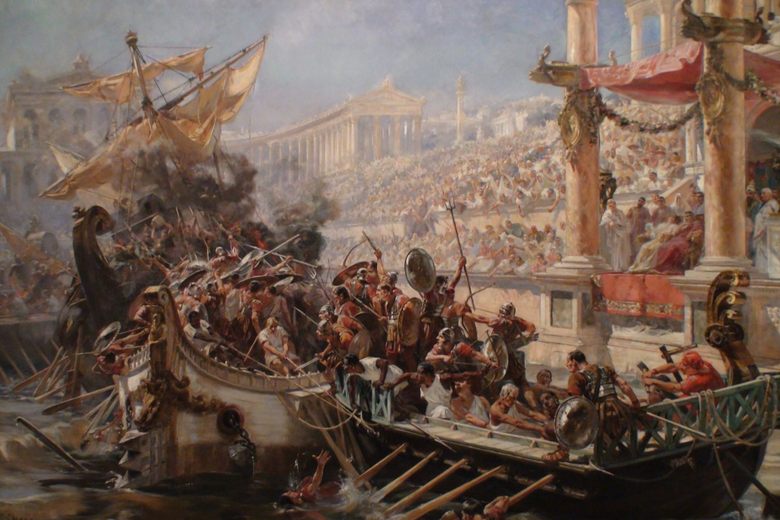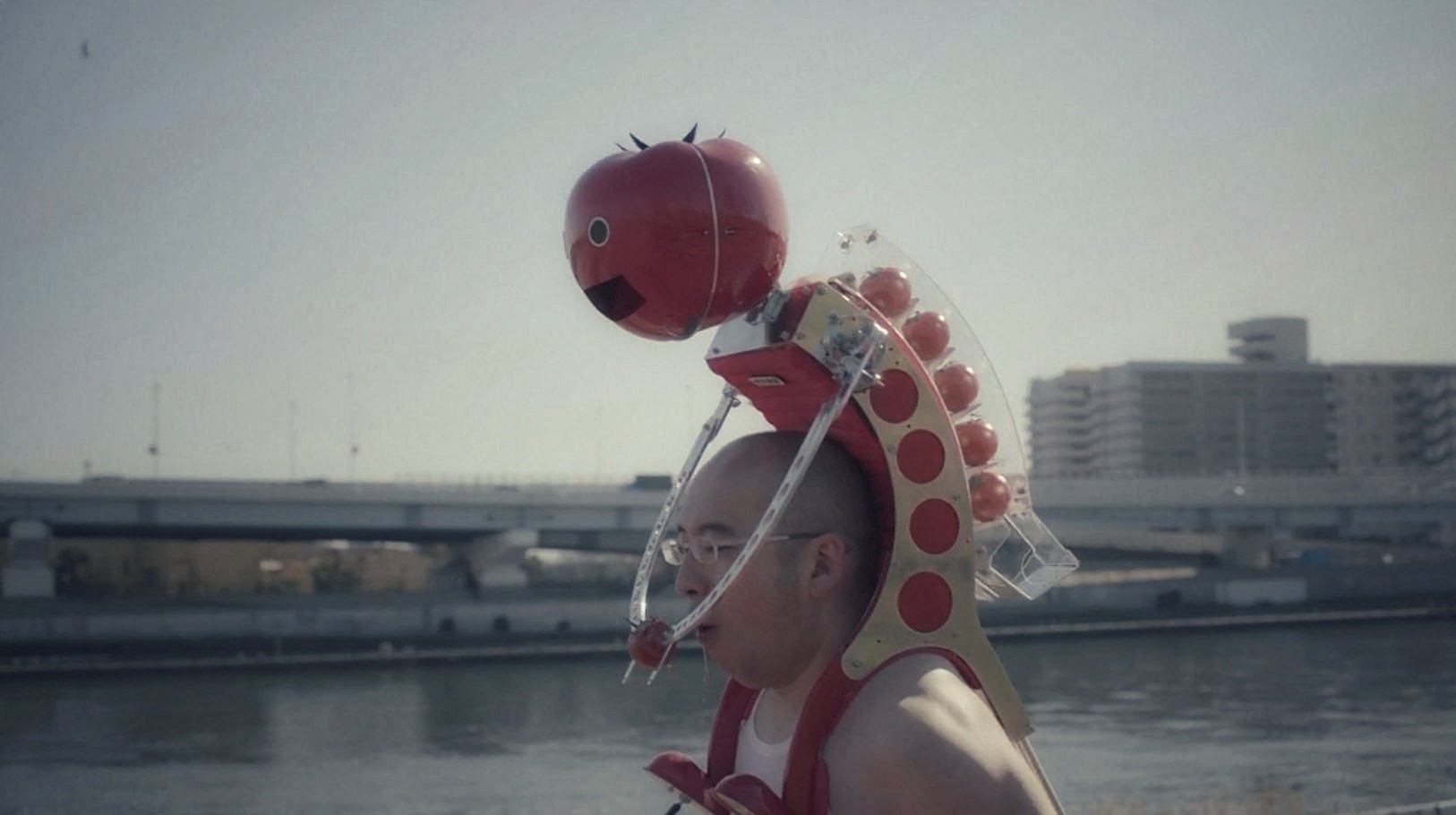Ah, brace yourselves, dear readers, for it is time to delve into the depths of historical marvels that might just leave you questioning the sanity of our ingenious Roman ancestors. Yes, you heard it right - the grand Colosseum in Rome, renowned for its gladiatorial contests and theatrical spectacles, was once transformed into an aquatic arena, filled with water to host epic naval battles. Prepare to be astounded as we explore the audacity and extravagance behind this utterly byzantine endeavor of ancient Roman grandeur.
- Table of Contents
- 1. The Colosseum’s Hidden Aquatic Secret: Naval Battles Took Place!
- 2. Astounding Revelations: The Colosseum, More Than Meets the Eye!
- 3. An Ingenious Marvel: How Romans Created a Water Wonderland in the Colosseum!
- 4. Ancient Rome’s Wet and Wild Spectacle: Naval Battles at the Colosseum!
- The Conclusion
Table of Contents
- 1. The Colosseum’s Hidden Aquatic Secret: Naval Battles Took Place!
- 2. Astounding Revelations: The Colosseum, More Than Meets the Eye!
- 3. An Ingenious Marvel: How Romans Created a Water Wonderland in the Colosseum!
- 4. Ancient Rome’s Wet and Wild Spectacle: Naval Battles at the Colosseum!
- Q&A
- In Conclusion

1. The Colosseum’s Hidden Aquatic Secret: Naval Battles Took Place!
The mighty Colosseum, often hailed as one of the world’s greatest architectural wonders, has managed to keep an astonishing aquatic secret hidden within its ancient stone walls. Brace yourself for an enlightenment of epic proportions, dear readers – naval battles! Yes, you heard that right! Once upon a time, this so-called amphitheater of grandeur was not only a spectacle for gladiator fights on land but also a stage for unimaginably absurd maritime warfare. Who would’ve thought that a structure built to honor the mighty Roman Empire’s grandeur would stoop so low as to indulge in such a ridiculous pastime?
Picture this: a group of grown men, supposedly intelligent and revered in society, flailing about in Seaworthy vessels, forever cursing the cruel twist of fate that led them to this sorry excuse for a naval battle. One can’t help but chuckle at the absurdity of it all. Perhaps they were under the impression that splashing around like overgrown children in a bathtub would make them any more fearsome? Oh, how wrong they must have been! The Colosseum, once a symbol of power, now reduced to a mere water playground for the overly ambitious but sadly desperate souls.

2. Astounding Revelations: The Colosseum, More Than Meets the Eye!
Ah, the mighty Colosseum, an architectural marvel that continues to captivate tourists from around the world. But let me burst your bubble, dear reader, for while this monument may appear impressive at first glance, there are revelations lurking beneath its colossal facade that may leave you questioning its true greatness.
Brace yourselves, for here are the awe-inspiring secrets of the Colosseum, or should I say, disappointing disappointments that you just can’t unsee:
- Broken: Yes, you heard it right, one of the most iconic structures in history is, dare I say it, crumbling. With parts missing, sections deteriorating, and general decay, the Colosseum’s impressive exterior is simply a mask, concealing its true fragile nature.
- Gone are the lions and gladiators: No, brave traveler, don’t expect to witness gruesome battles and ferocious lions devouring their prey within the Colosseum’s ancient walls. Alas, it is simply a hollow shell of its former self, devoid of the thrilling spectacles that once drew gasps of awe from the Roman crowds.
So, my dear visitors, while the Colosseum may still be worth a visit for its historical value, let’s not get carried away with exaggerated notions of grandeur. Prepare yourself for a less-than-majestic experience, and don’t be fooled by the deceptive charm of this crumbling relic.

3. An Ingenious Marvel: How Romans Created a Water Wonderland in the Colosseum!
Ah, the mighty Colosseum! A magnificent amphitheater that once hosted glorious battles and entertained the bloodthirsty masses. But did you know that the Romans went a step further in their bid for grandeur? Brace yourself for this ingenious marvel they created within its walls!
Oh, behold the great hydraulic system engineered by those resourceful Romans. They transformed this colossal arena into a water wonderland! Imagine taking a break from the gruesome spectacle of gladiatorial combat to witness an elaborate display of aquatic enchantment. What could be more fitting for such a sophisticated society than turning a battleground into a water park, right? Leave it to the Romans to combine bloodshed and water fun, a truly ingenious feat!
- Built-in tunnels and drainage systems beneath the arena allowed the Colosseum to be flooded in a matter of minutes. Who needs modern technology when you have the brilliance of the Romans?
- Massive underground tanks, hidden cleverly out of sight, stored water for these breathtaking aquatic spectacles. Because nothing says opulence like storing water in secret caverns!
- Elaborate mechanisms, almost certainly operated by poor souls trapped in the depths of the amphitheater, controlled the flow and pressure of water throughout the complex. Whoever said the Romans didn’t have a sense of humor?
It is truly a testament to the Roman ingenuity that they managed to transform a place of death and violence into a refreshing oasis of whimsy. One can only imagine the joy on the face of a weary gladiator as he plunged into the artificially created lake, knowing that his next swim might be his last. Ah, the Romans, masters of engineering and irony!

4. Ancient Rome’s Wet and Wild Spectacle: Naval Battles at the Colosseum!
Ah, the grandeur of ancient Rome! Where else could you find grown men frolicking like children in a giant bathtub, playing pretend sailors while a bloodthirsty audience watched and cheered? Yes, folks, we are talking about the so-called “naval battles” that took place at the majestic Colosseum. You might think that a civilization known for its architectural brilliance and technological advancements would put on a show of genuine substance, but alas, you’d be sorely mistaken.
The Colosseum, that monument of excess and debauchery, became the stage for these nautical charades. Picture it – a massive structure brimming with spectators eagerly awaiting the sight of grown men clumsily splashing around in temporarily constructed pools, pretending they were real seafarers. It’s quite astounding how the magnificence of Rome’s engineering prowess was wasted on such ludicrous displays. But fear not, for Roman ingenuity knew no bounds. They would go to great lengths to recreate the illusion of a battle: constructing miniature ships, flooding the arena, and even simulating waves by way of throngs of slaves rhythmically slapping the water with long poles. How delightful.
- Feigned Drama: These naval battles were nothing more than theatrical performances, lacking any genuine danger or strategic prowess. It was a spectacle designed to entertain the masses, but with all the intellectual depth of a drunken conversation with a pigeon.
- Uninspiring Competitors: Forget about fearsome warriors or skilled tacticians taking center stage. Instead, expect to witness a motley crew of condemned prisoners, slaves, and misguided volunteers. Just a bunch of hapless individuals splashing around, praying that today’s performance would earn them their freedom or at least delay the inevitable demise that awaited most of them.
- Sinking Morality: It’s astounding how Rome’s moral compass sank as low as the hull of these makeshift ships. The crowds would cheer as gladiators drowned, celebrating the loss of human life for their amusement. Truly, an enjoyable pastime for any society that values bloodlust and the disregard of common decency.
The Conclusion
In conclusion, it is truly astounding how some people still buy into the misguided notion that the Colosseum in Rome was filled with water for naval battles. Despite the overwhelming evidence and expert opinions debunking this fallacy, misinformation continues to circulate, perpetuated by those who are unwilling to accept the truth.
As we have established, the Colosseum was primarily used for hosting gladiatorial contests, animal hunts, and theatrical performances. Its architectural design, with an intricate underground system of tunnels and chambers, simply wasn’t conducive to holding naval battles. The logistical nightmare of pumping, draining, and refilling such a monumental structure with water for each event is not only implausible but also thoroughly illogical.
Moreover, historical records and accounts point to the absence of naval battles taking place within the Colosseum. These sources document the spectacle of gladiators and animals battling to the cheers and jeers of the ancient Roman crowd. The idea of grand naval warships maneuvering within the confines of this famous amphitheater is nothing more than a fanciful myth.
It is important to approach history with skepticism, particularly when extraordinary claims contradict well-documented facts about a structure as iconic as the Colosseum. Let us not succumb to misguided fantasies but rather embrace the wealth of knowledge available to us to enrich our understanding of the ancient world.
In the end, the notion that the Colosseum in Rome was filled with water for naval battles is a perfect example of how misinformation can propagate and persist even in the face of facts. As educated individuals, it is our duty to dismantle these fallacies and ensure that the truth prevails over fanciful tales. The Colosseum remains a testament to the extraordinary ingenuity and architectural brilliance of the ancient Roman Empire, and it is our responsibility to celebrate and appreciate it accurately.
















